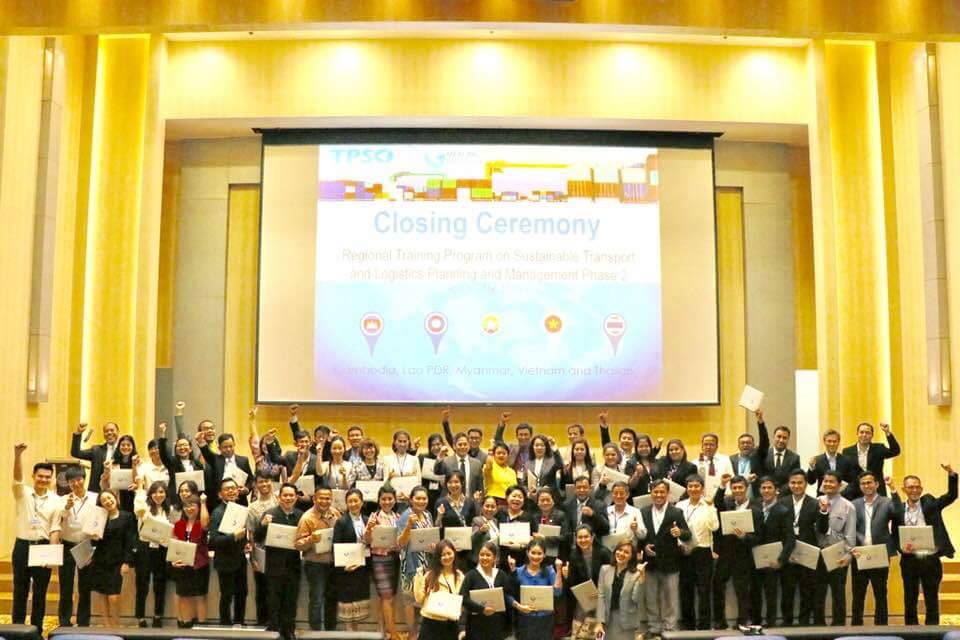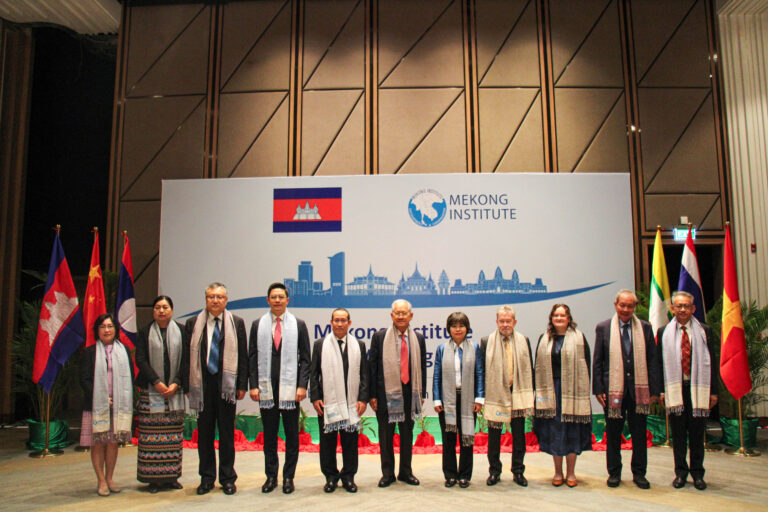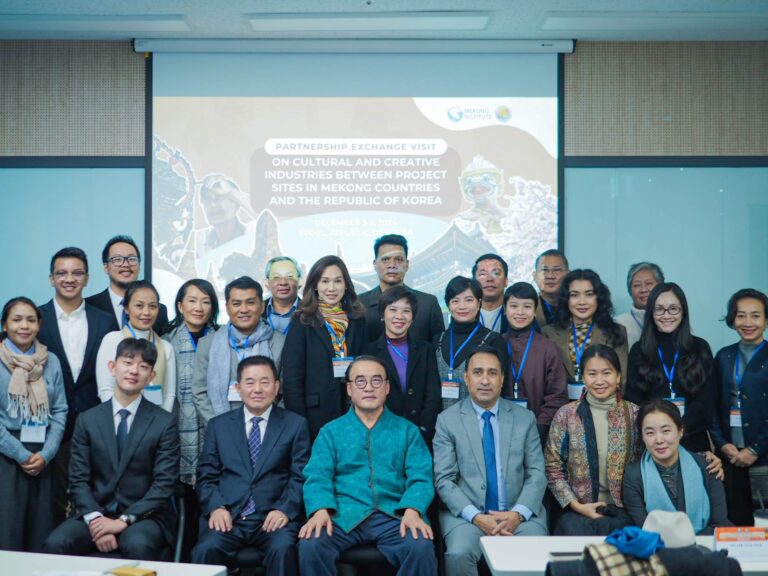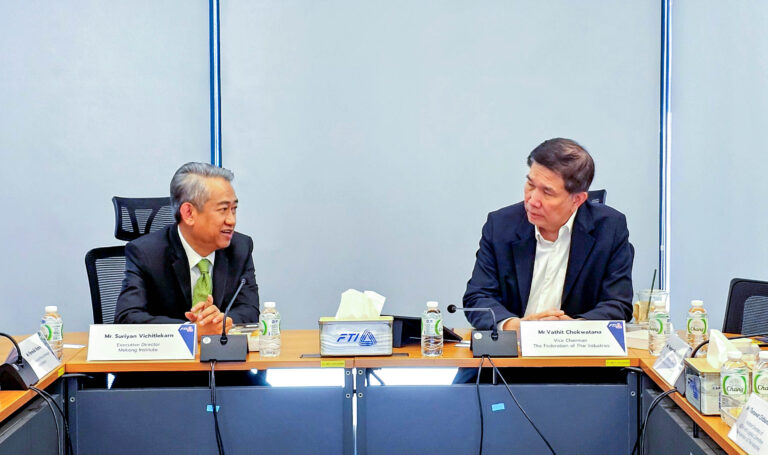With support from the Trade Policy and Strategy Office (TPSO), Ministry of Commerce, Thailand, MI organized the Regional Training Program on Sustainable Transport and Logistics Planning and Management Phase 2 on April 30-May 11, 2018.
A total of 61 participants including mid-level, senior and management-level officials, and transport and logistics operators from Cambodia, Lao PDR, Myanmar, Vietnam and Thailand (CLMVT) joined the training program. The two-week course was structured into three components comprising of training, structured learning visits (SLVs) and business networking.
Held at the MI training facility in Khon Kaen, Thailand, the program covered topics such as the importance of transport and logistics; its challenges and opportunities; strategies for transport planning and management; international transport agreements in CLMVT and ASEAN; and green freight and the role of the government in promoting green logistics, among others.
Participants gained knowledge and skills from a team of national and MI in-house experts with experience in sustainable transport and logistics planning and management at the regional level. The resource persons also provided the participants insights to international best practices and expertise.
To complement the training content, five structured learning visits were also organized to the Professional ID Driver Training School (Saraburi province), LEO Global Logistics Public Company (AMATA Nakorn, Chonburi province), Hafele Co. Ltd. (Logistics Center), Lad Krabang Inland Container Depot, and Loxley Simulation Technology Co., Ltd. (Bangkok).
The visits were designed to provide additional hands-on knowledge on best practices of sustainable logistics sector management in Thailand, with a focus on modern techniques and approaches. Some of the topics explored in the field visits were techniques to train drivers; strategies on business expansion to CLMVT and management of branch offices; key approaches to achieve optimum cost in overall operations; innovation processes; and ICT for business operations.
Likewise, a business networking was organized with members of Thai Logistics for Greater Mekong Sub-region Trade Association, Chamber of Commerce, and the Federation of Thai Industries in Khon Kaen. The business networking took place both at MI and during the field visits.
At the closing ceremony on May 11, Ms. Pimchanok Vonkorpon, Director-General of TPSO, said that MI’s recent training course on sustainable transport and logistics is well-aligned with the Ministry’s program in 2016, the ‘CLMVT Forum 2016: Towards a Shared Prosperity.’ One of the forum’s quick-win result was the ‘Think Regionally: Human Capital Development Partnership’, a joint human resource development effort in CLMVT wherein human resource management in the logistics sector is one of the key areas emphasized. Discussions on topics like dangerous goods for air and road transport, warehouse management, distribution center handling process, and e-commerce will be especially relevant in the next CLMVT Forum on August 16-17, 2018, which will center on how technologies improve the region and its businesses.
Dr. Watcharas Leelawath, MI Executive Director, further remarked that the recently-concluded training program aimed to help participants better understand the significance of sustainable transport and logistics management. As change agents in CLMVT, they can create and strengthen the business network among the public, academic and private sectors, leading to professional relationships in terms of business cooperation, policy and research development. He also underscored the need for an advanced course that can further improve the capacity to translate knowledge into concrete outcomes.
Discussing ways forward, Mr. Madhurjya Kumar Dutta, Director of Trade and Investment and Facilitation Department of MI, explained that the individual action plans will serve as the application and dissemination of the participants’ knowledge and learning points gained from the training. These action plans should be translated into concrete actions as the funding agency expects to see tangible outcomes.
Referring in particular to business development, he pointed out that MI has created an online logistics information platform (www.logisticsgms.com) that serves as a tool to enhance the GMS logistics services network and promote efficient logistics services in the region and beyond. The website also provides the most updated and integrated regulations and agreements, news, events and related information on logistics and transportation at the national (CLMVT), regional (GMS and ASEAN), and international levels. He encouraged the participants to utilize the web-based database to foster business collaboration and expansion.







